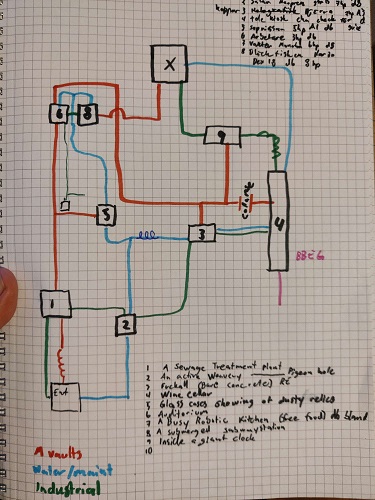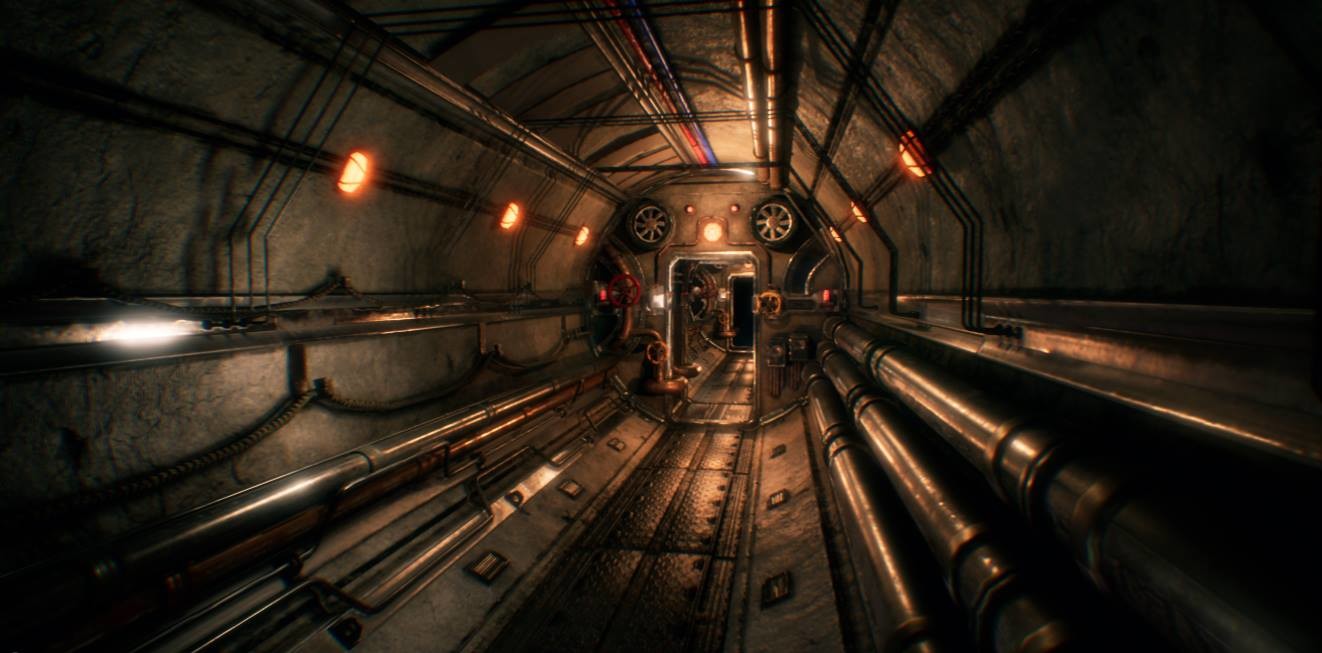Not with me, but rather it’s me interviewing Kristoffer about his alleged one-session, now multi-session game of Electric Bastionland. The context begins with a bit of prior play with me GMing, using only the free version, then the subject of this interview, which is his GMing from scratch with another group, using the entire text. This was an in-person interview, hanging out at Spelens Hus here in town.
The topic is definitely dynamic situation, focusing first on composition of maps and their inhabitants, then on character creation and play, and finally on responsive and previously-unknown activities during play.
(in order) Part 1, Part 2, and Part 3
Plus the map!



3 responses to “Sewer madness”
That grammar analogy at the end is quite illuminating. “Play” which is about control and getting through the setpieces is pretty clearly governed by passive verbs and especially “to be”, as you said. The flipside is “be” in the imperative: Be this! Be there!
And scarily, this can come from inside a player themselves, said to themselves, and not just from the typical big bad dungeon master example.
Play which deals with fixed outcomes (hid behind illusions or not) where “the point” is seen as “HOW we did the thing, not WHAT we did”, accepts as satisfactory the paltry game of building adjectives.
I agree! A lot of the course content stays with this point, especially in Numeracy and in Situation and Story.
Also, that’s a really good point about the imperative. I hadn’t seen that and it makes perfect sense; it corresponds with one of my points at the Forge – which never seemed to sink in – that I considered the dice-and-numbers fetish and the characters-depth-and-depiction fetish to be the same things, and that alleged system differences between “roll vs. role” were illusory. Nailing it down in these terms, with your clarification, really helps me understand why.